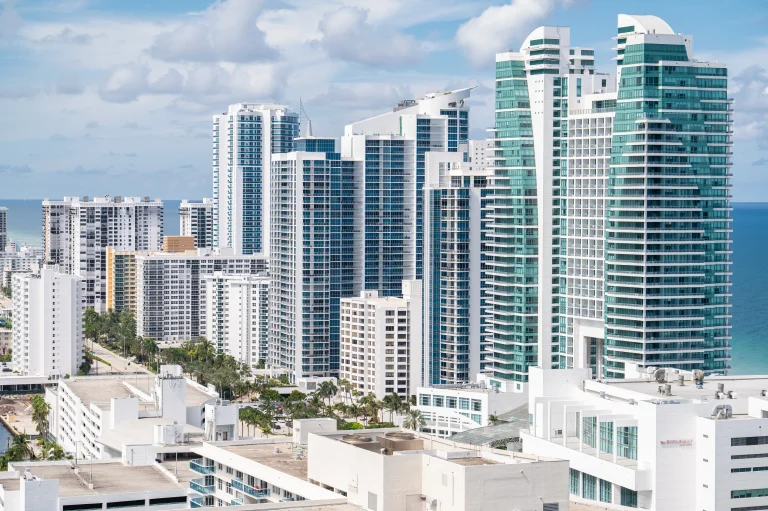New Hampshire Vs. Massachusetts: How The Neighboring States Stack Up
New England neighbors New Hampshire and Massachusetts share a border, but their histories, cultures, and laws differ in many ways. Both states offer stunning natural beauty, top-notch education, and easy access to Boston. But New Hampshire’s tax structure and libertarian leanings contrast with the more progressive policies of Massachusetts. How do the Granite and Bay States compare and contrast when looking at factors like taxes, cost of living, nature, and more?
If you’re short on time, here’s a quick take: New Hampshire has no income tax and a low cost of living, while Massachusetts has higher taxes but more job opportunities and cultural attractions around Boston.
Tax Structure and Cost of Living
New Hampshire’s lack of income tax
When it comes to taxes, New Hampshire stands out from its neighbor Massachusetts. One of the major advantages of living in New Hampshire is that it does not impose a state income tax on its residents. This means that individuals and families can keep more of their hard-earned money in their pockets.
This tax policy has made New Hampshire an attractive destination for individuals looking to maximize their income and enjoy a lower overall tax burden.
Higher property taxes in New Hampshire
While New Hampshire may not have an income tax, it does have higher property taxes compared to Massachusetts. According to recent data from the Tax Foundation, New Hampshire ranks among the top 10 states in terms of property tax rates.
This can be attributed to the fact that New Hampshire relies heavily on property taxes to fund local services, education, and infrastructure. It is important for individuals considering a move to New Hampshire to factor in these higher property taxes when evaluating the overall cost of living.
Massachusetts’ high income and sales taxes
On the other hand, Massachusetts has a different tax structure that includes both income and sales taxes. The state imposes a flat income tax rate of 5.0% on all residents, regardless of income level. Additionally, Massachusetts has a sales tax rate of 6.25%, which is slightly higher than the national average.
These taxes contribute to the state’s revenue and help fund various public services and infrastructure projects.
It is worth noting that while Massachusetts has higher income and sales taxes compared to New Hampshire, the state also offers a range of benefits and amenities that may outweigh the tax burden for some individuals.
Massachusetts has a robust public transportation system, world-class educational institutions, and a thriving job market, particularly in sectors such as technology, healthcare, and finance.
Ultimately, the decision between New Hampshire and Massachusetts will depend on an individual’s personal financial situation and priorities. Some may prefer the tax advantages of New Hampshire, while others may value the opportunities and amenities offered by Massachusetts.
It is important to carefully weigh the pros and cons of each state before making a decision.
Economy and Job Market
When it comes to the economy and job market, both New Hampshire and Massachusetts have their own unique strengths. Let’s take a closer look at how these neighboring states stack up against each other.
New Hampshire dominated by small businesses
New Hampshire is known for its thriving small business community. In fact, small businesses make up the majority of the state’s economy. This entrepreneurial spirit has led to a diverse range of industries, including tourism, manufacturing, healthcare, and technology.
The state offers a business-friendly environment with low taxes and a skilled workforce. Many people are attracted to the state’s low cost of living and high quality of life, making it an appealing place to start and grow a small business.
Massachusetts economy centered around Greater Boston
On the other hand, Massachusetts has a more diversified economy with a strong focus on the Greater Boston area. The state boasts a robust financial sector, with Boston being a major hub for finance and banking.
Additionally, Massachusetts is a leader in technology and innovation, with many tech giants and startups choosing to call the state home. The healthcare and biotech industries are also major contributors to the state’s economy.
With world-renowned universities and research institutions, Massachusetts attracts top talent from around the globe.
Massachusetts leads in tech, biotech, finance industries
When it comes to specific industries, Massachusetts definitely has the upper hand. The state is a leader in the tech industry, with a thriving startup scene and a high concentration of tech companies. Biotechnology is another area where Massachusetts shines, with numerous biotech companies and research institutions driving innovation and advancements in healthcare.
In the financial sector, Massachusetts is home to many major banks, investment firms, and insurance companies.
Sources:
- https://www.nhes.nh.gov/elmi/products/documents/overview.pdf
- https://www.mass.gov/employment-and-wage-data
Politics and Culture
New Hampshire favors libertarian, independent policies
When it comes to politics, New Hampshire has earned a reputation for its libertarian leanings and independent spirit. The state prides itself on its commitment to individual freedoms and limited government intervention.
With no sales tax or personal income tax, New Hampshire has become an attractive destination for those seeking a low-tax environment. This has made it a popular choice for businesses and individuals looking to maximize their financial freedom.
New Hampshire’s political landscape is also characterized by its significant number of independent voters. In fact, the state boasts one of the highest percentages of independent voters in the country.
This independent streak can be seen in the state’s political climate, where candidates from various parties have a fair chance of success.
Massachusetts known for progressive politics
In contrast to New Hampshire, Massachusetts is widely recognized for its progressive politics. The state has a long history of leading the nation in areas such as healthcare reform, LGBTQ+ rights, and environmental protection.
Massachusetts was the first state to legalize same-sex marriage, and it has consistently ranked among the top states for healthcare access and quality.
The progressive values of Massachusetts are reflected in its political representation as well. The state is known for its Democratic dominance, with a majority of its elected officials belonging to the Democratic Party.
This has allowed Massachusetts to be at the forefront of progressive policies and initiatives.
Both states value education, history, and natural beauty
While New Hampshire and Massachusetts may differ in their political ideologies, they share common ground when it comes to their appreciation for education, history, and natural beauty.
New Hampshire is home to prestigious universities such as Dartmouth College and the University of New Hampshire, which attract students from all over the country. The state’s commitment to education is evident in its high school graduation rates and SAT scores, which consistently rank above the national average.
Similarly, Massachusetts is renowned for its world-class educational institutions, including Harvard University and the Massachusetts Institute of Technology (MIT). The state has a strong emphasis on education, with a highly educated population and a high number of college graduates.
Both states also boast rich historical heritage. New Hampshire played a crucial role in the American Revolution, with historical sites such as the Old North Church and the Paul Revere House attracting tourists from near and far.
Massachusetts, on the other hand, is home to iconic landmarks like Plymouth Rock and the Freedom Trail, which offer glimpses into the nation’s colonial history.
Furthermore, both states are known for their stunning natural beauty. New Hampshire’s picturesque landscapes, including the White Mountains and Lake Winnipesaukee, make it a popular destination for outdoor enthusiasts.
Massachusetts offers its own share of natural wonders, such as Cape Cod’s pristine beaches and the scenic Berkshires region.
Nature, Recreation, and Tourism
New Hampshire’s dramatic mountains and forests
New Hampshire is famous for its breathtaking natural beauty, particularly its dramatic mountains and lush forests. The state is home to the White Mountains, which offer stunning vistas, challenging hiking trails, and world-class skiing opportunities.
Mount Washington, the highest peak in the Northeastern United States, attracts outdoor enthusiasts from all over the country. The state’s extensive network of hiking trails, such as the Appalachian Trail, provides endless opportunities for exploration and adventure.
Whether you’re an avid hiker, a nature lover, or simply seeking tranquility, New Hampshire’s mountains and forests offer a fantastic escape from the hustle and bustle of everyday life.
Coastal charm along Massachusetts’ beaches
Massachusetts, on the other hand, boasts a picturesque coastline dotted with charming towns and beautiful beaches. From the sandy shores of Cape Cod to the rugged beauty of Martha’s Vineyard and Nantucket, there is no shortage of coastal charm in the Bay State.
Beachgoers can enjoy swimming, sunbathing, and beachcombing, while outdoor enthusiasts can indulge in activities such as sailing, kayaking, and fishing. Additionally, Massachusetts is home to numerous state parks and nature reserves, where visitors can explore diverse ecosystems and observe native wildlife.
Whether you’re looking for a relaxing beach vacation or an outdoor adventure, Massachusetts’ coastal areas have something to offer everyone.
Both offer plenty of outdoor recreation
Both New Hampshire and Massachusetts offer a wide range of outdoor recreational activities to suit every interest and skill level. In addition to hiking and skiing, New Hampshire is known for its extensive network of lakes and rivers, perfect for boating, fishing, and swimming.
The state also boasts numerous campgrounds and RV parks, where visitors can immerse themselves in the great outdoors. Similarly, Massachusetts offers ample opportunities for outdoor enthusiasts, with activities such as biking, golfing, and birdwatching available throughout the state.
Whether you prefer the rugged mountains of New Hampshire or the coastal beauty of Massachusetts, both states provide a wealth of options for outdoor recreation.
So, whether you’re a nature lover, an adventure seeker, or simply looking to relax and unwind, both New Hampshire and Massachusetts have plenty to offer in terms of nature, recreation, and tourism. With their stunning landscapes, diverse ecosystems, and abundant outdoor activities, these neighboring states are sure to leave visitors amazed and eager to explore more.
Major Cities and Towns
Manchester is New Hampshire’s largest city
When comparing New Hampshire and Massachusetts, it’s important to take a closer look at their major cities and towns. In New Hampshire, the largest city is Manchester. Known for its vibrant arts scene and rich history, Manchester offers a blend of urban amenities and small-town charm.
With a population of over 110,000, it serves as the economic and cultural hub of the state. Visitors and residents alike can enjoy a variety of attractions, including museums, parks, and a bustling downtown area filled with shops and restaurants.
Massachusetts dominated globally by metropolitan Boston
On the other hand, Massachusetts is dominated by its capital city, Boston. As one of the oldest cities in the United States, Boston is steeped in history and offers a unique blend of old-world charm and modern innovation.
With a population of over 685,000, Boston is not only the largest city in Massachusetts but also serves as the economic and cultural center of the entire New England region. Visitors can explore iconic landmarks such as the Freedom Trail, Fenway Park, and the historic neighborhoods of Beacon Hill and Back Bay.
Similar historic New England town aesthetics
While New Hampshire and Massachusetts have distinct major cities, both states share a similar aesthetic when it comes to their historic New England towns. These towns, such as Portsmouth in New Hampshire and Salem in Massachusetts, offer picturesque settings with charming colonial architecture and quaint streets lined with unique shops and eateries.
Whether you’re strolling along the cobblestone streets of Portsmouth or exploring the witch trials history in Salem, these towns provide a glimpse into the region’s rich history and heritage.
Conclusion
New Hampshire and Massachusetts each have their own unique charms and assets. New Hampshire may appeal more to lovers of small government and mountain wilderness, while Massachusetts offers more thriving industries and cultural attractions. Either state makes a wonderful place to live or visit in New England.
With their quaint towns, educated populations, and natural splendor, New Hampshire and Massachusetts exemplify historic New England. But New Hampshire’s fiercely independent spirit and tax policies differ from Massachusetts’ global hub around Boston and progressive politics.








